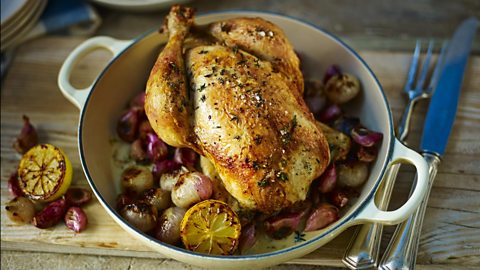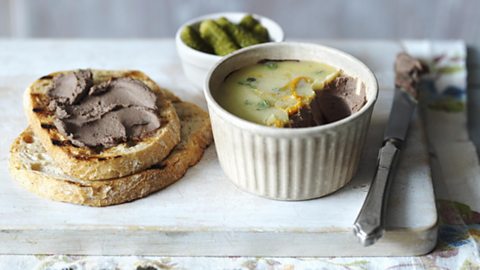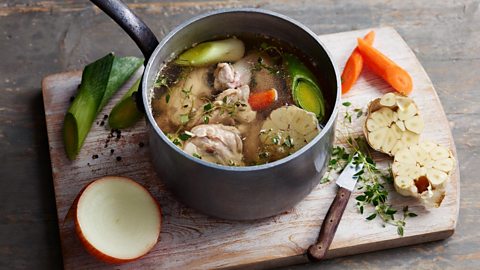How to save money on meat
The perfect storm of global price hikes has seen the cost of meat soar, and options usually considered affordable have been impacted. But whether you eat it regularly or follow a flexitarian diet, there are ways to reduce your spend on meat, as Sue Quinn explains.

Prices are rising at their fastest rate in decades, with food costs, including meat, a key cause of the spiralling cost of living. A complex range of factors is to blame, including the war in Ukraine, which has squeezed global grain production and pushed up animal feed costs. As a result, the price of items like beef mince and chicken, traditionally among the least expensive options, have been driven up.
According to the Office of National Statistics (ONS), the price of meat in general rose by almost 10 percent in the year to the end of May, and budget options have been hit hard. In a separate survey, the ONS tracked the price of thirty low-cost grocery items, and meat showed the biggest increase. On average, beef mince rose by almost 16 percent in the year to the end of April, rising by 32 pence to £2.34 for 500g. Chicken breast was up by almost nine percent, rising by 28 pence to £3.50 for 600g.
“The price of meat is rising but there are things you can do to keep costs down,” says Denise Spencer-Walker, a home economist and Food Communications Manager with the Agriculture and Horticulture Development Board (AHDB). “It goes back to knowing which cuts to buy and how to cook them.”
Which meats are the cheapest?

Some references to ‘inexpensive’ cuts of meat in recipes and cookbooks can be misleading. For example, oxtail was once considered cheap, but demand for this previously neglected cut has risen and, therefore, so have prices. But there are reliably inexpensive options that are delicious and nutritious.
Not everyone has access to a butcher’s shop, but use one if you can, Spencer-Walker suggests. They sell cuts of meat that aren’t available in supermarkets, and butchers are happy to advise on budget options. “They’ll be able to tell you what the best value cuts are on that day,” Spencer-Walker says. “They’re a wealth of information, they’re trained to help you save money.”
Offcuts
Look for thin-cut, ‘frying’ or ‘minute’ steaks, which are thin offcuts (5–7mm thick) from different parts of the animal. They’re inexpensive, quick to cook, flavoursome and versatile. Try them in sandwiches loaded with vegetables, cut into thin strips in stir-fries or fajitas, or tossed through salad perhaps bulked out with grains or noodles, to make a complete meal.
Braising steak is another offcut but needs to be cooked long and slow, and kept moist, to remain tender. Braising steak is ideal for curries, tagines and stews; use a slow cooker if you have one, as it consumes less electricity than the oven.
Pork steaks are a cost-effective option, too. You can make them go further by placing them between two sheets of cling film or greaseproof paper and bashing them out with a heavy rolling pin or pan. Prepared this way for dishes like schnitzel, one pork loin fillet will serve two people.
Mince
Mince or ground beef is a popular low-cost standby, but prices and quality vary. It’s often made from a range of different cuts and parts of the animal, and the fat content, which is the saturated kind, can vary from five percent to more than 20 percent. Mince with the highest percentage of fat is the cheapest, but the government recommends limiting our intake of saturated fat. So, what’s the best choice?
“It’s a moderation game,” says Dr Linia Patel, registered dietitian, and a spokesperson for the British Dietetic Association. “Choose one in the middle, not the leanest and not the fattiest, and then consider what else you can add into the dish to make it more nutritious.”
Cheaper versions of dishes like lasagne, cottage pie and meat ragu pasta sauces can be made by swapping out some or all of the mince for plant-based ingredients. Not only does this make them cheaper, but also increases the nutrients. “Extending these dishes with lentils, beans or adding more vegetables is a fantastic way of getting the same important nutrients we get from meat,” Dr Patel says. “It’s also a way of eating more plants, which we know makes us healthier.”
Beans and lentils are good substitutions because they add meat-like texture and are loaded with fibre, which most of us should eat more of Dr Patel says. “They also contain other micronutrients like B vitamins.”
Spencer-Walker often opts for fatty mince because it’s more flavourful and makes juicy meatballs and burgers that can be dry when made with lean mince. “If it's higher-fat mince you don't need any additional fat if you cook in a really hot non-stick pan or in the oven,” she says. “The fattier mince is almost self-basting.” When browning fatty mince she spoons off most of the fat that renders out. “This reduces your overall fat content, but you still get some of the flavour and moisture from the fat,” she says.
Pork is currently the cheapest mince option (just) and Spencer-Walker urges home cooks who might not have considered it before to try it. “Pork mince has been overlooked in the past but that’s starting to change, as savvy shoppers realise it’s cheap.” Beef and lamb mince can easily be swapped for pork in recipes (or use a mixture) and is delicious in pork meatballs, meatloaf, or Chinese dishes such as dumplings or stir-fried noodles.
Offal

Love it or hate it, offal – organ meat including liver, heart, and kidney – is worth considering. Considerably cheaper than muscle meat and widely available in supermarkets, it can be cooked in ways that mellow out the strong, iron-rich flavour some people find off-putting. Eating offal also helps reduce food waste and potentially helps the environment; if more people opted for offal instead of meat, research suggests, fewer animals would need to be reared.
Best of all, organ meat is nutrient-dense, so you don’t need to eat a lot to reap the benefits. “Liver, for example is a nutritional powerhouse and almost like nature’s multivitamin,” says Dr Patel, adding it’s particularly rich in iron, vitamins A and B, and other nutrients.
If the strong flavour of offal doesn’t appeal Spencer-Walker suggests lamb’s liver over ox, calf, or pig, because it’s milder-tasting. Add small amounts to dishes like pies, sauces, and stews, and/or marinate liver overnight in the fridge with herbs and spices before cooking. Alternatively use it in dishes such as pâté. “Be careful not to overcook liver as it can be tough,” she adds.
Sausages
Sausages can be inexpensive but, again, quality varies. Spencer-Walker recommends checking the ingredients on the pack and choosing varieties containing at least 60 percent meat. These can be pricier than the cheapest sausages, which are bulked out with rusk and wheat starch, but you can make them stretch further and they’re better for you. “Try taking them out of their skins and using them as you would mince,“ she suggests. “And hunt around, as there are some really good value quality pork sausages out there at the moment.”
Because sausages aren’t necessarily nutritious, Dr Patel suggest using them in dishes containing healthy ingredients. “Sausages often contain lots of fat, additives and salt, so rather than having just bangers and mash, make a sausage casserole and add some chickpeas, butter beans or vegetables,” she suggests. “Again, it’s about making meat just part of a main dish and working out ways to add more plant-based ingredients.”
Chicken

Chicken is the UK’s favourite meat, but prices are rising, and soon it could cost as much as beef, some supermarkets have warned. But chicken can still be good value. Thighs are generally less expensive than breasts, they’re widely available boneless, and chefs prize them for their superior flavour and juiciness. Dr Patel says that even though chicken thighs are marginally higher in saturated fat than breasts, they contain more iron, so they’re still a good choice.
The most cost-effective way to enjoy chicken is to buy one whole and use it for several meals. Leftovers from a roast are easy to use in rice dishes, salads, fillings for baked potatoes, pasta, omelettes, and sandwiches. Cooking the carcass for chicken stock is easy, and this can form the basis of other meals including soup. And rice, legumes and noodles are also delicious simmered in stock instead of water.
Originally published July 2022.